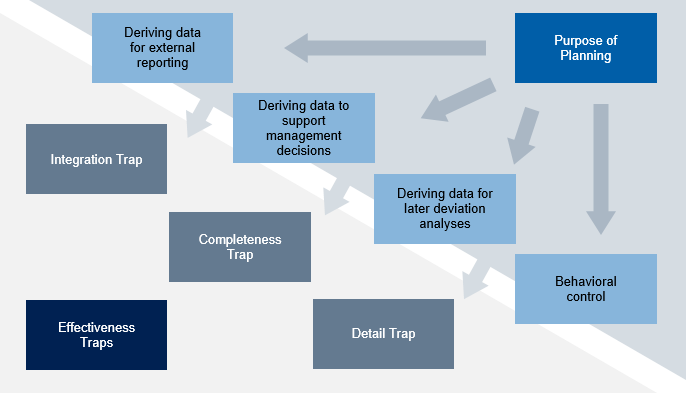Around 80% of the issues that are discussed in a corporate planning project are totally tool-independent. More than that, the value added of introducing a new tool typically comes from a process redesign rather than from the tool itself.
Author: admin_palumpa
„…Tomorrow belongs to those who can hear it coming…“(David Bowie). Realtime-consolidation is becoming true now with SAP BPC Embedded. In this paper we shed some light on the future of SAP-based consolidation. In the sense of David Bowie we argue that Tomorrow in consolidation tools belongs to those who can hear it coming.
In a dynamic competitive environment efficient corporate planning becomes a critical success factor. But more than in operational processes, corporate planning is very hard to evaluate. How efficient is your planning? How do your planning processes compare to best-practices and to other companies? A new study in cooperation with a German university provides answers.
Way more than in operational processes, corporate planning is very hard to evaluate. What tells you that your planning is “good”? What does “good” even mean? And is that worth the money your company spends on it? A new study in cooperation with a German university provides answers.
Planning always means handling uncertainty. Organizations want to avoid uncertainty as good as possible, and they use planning as a means to achieve that. A frequent misunderstanding in doing so is that a more detailed planning automatically means a more accurate planning. The opposite can be the case.
Budgeting and Target-Setting have become a tradition in many companies, even though they can cause quite obvious negative side effects. Provocatively speaking, classical budgeting processes not only are very time-consuming and costly. They regularly force people to cheat.
Successful medium-sized companies often have very specific requirements with regards to the functionalities of a planning & consolidation tool. Tangible and immediate benefits as to process cycle times, data quality and transparency are expected. Nonetheless the system needs to be flexible and should be manageable by functional departments. In our recent project at a German chemicals company SAP BPC proved to be ideally suited for efficient consolidation solutions in SMEs.
The growing demand for forward-looking information will put a sharper focus on integrated corporate planning. Experience shows that the introduction of effective planning processes is a big challenge in many organizations.

With its 500 years of history Orell Füssli AG stands for reliability, quality and security, but also for the utilization of advanced technologies in favor of its customers. When it comes to internal processes like planning and consolidation, Orell Füssli expects efficiency, highest data quality and user-friendly system support. The new Business Planning & Consolidation solution (BPC) that was implemented by Paluma perfectly reflects these values.

